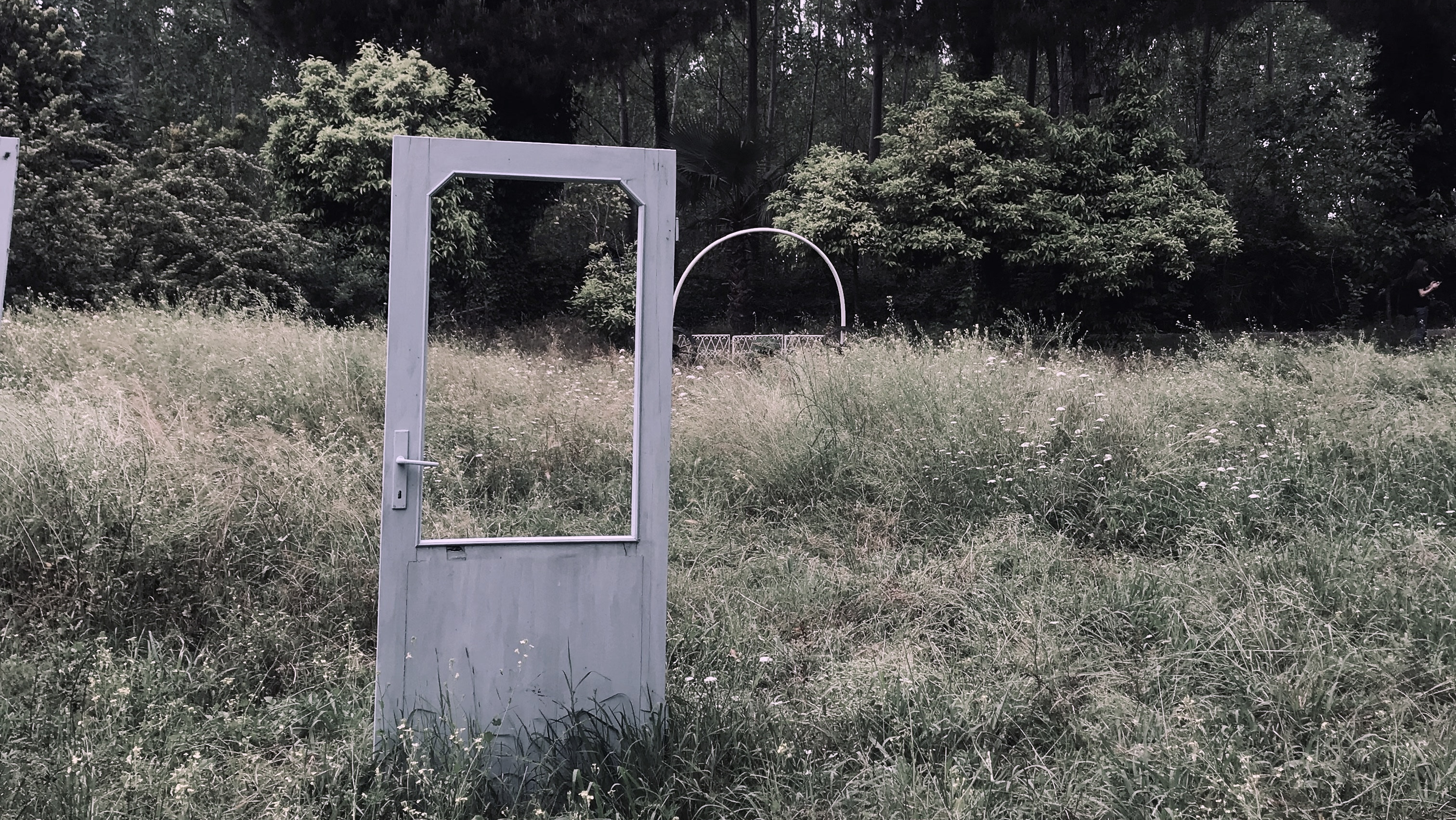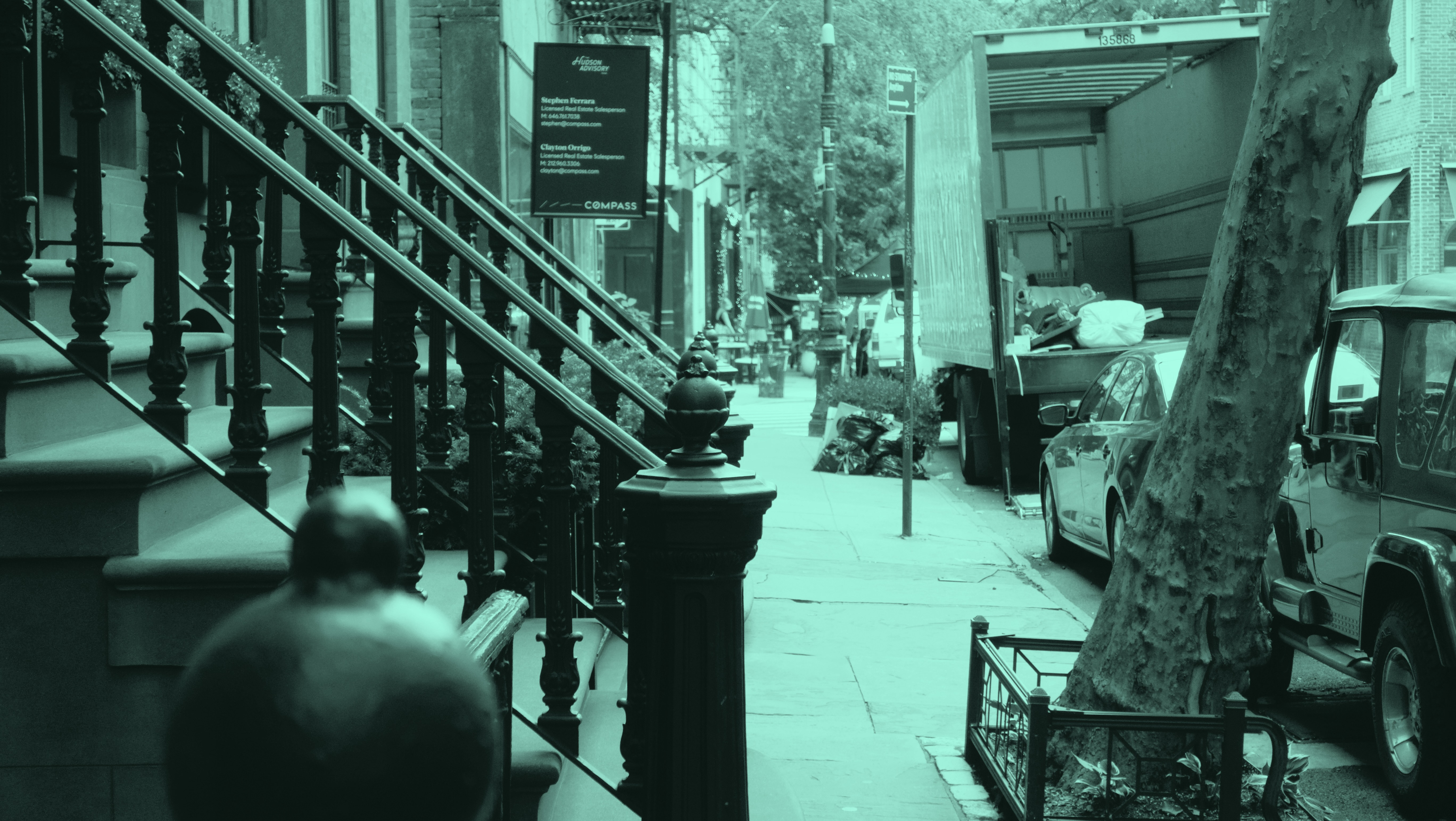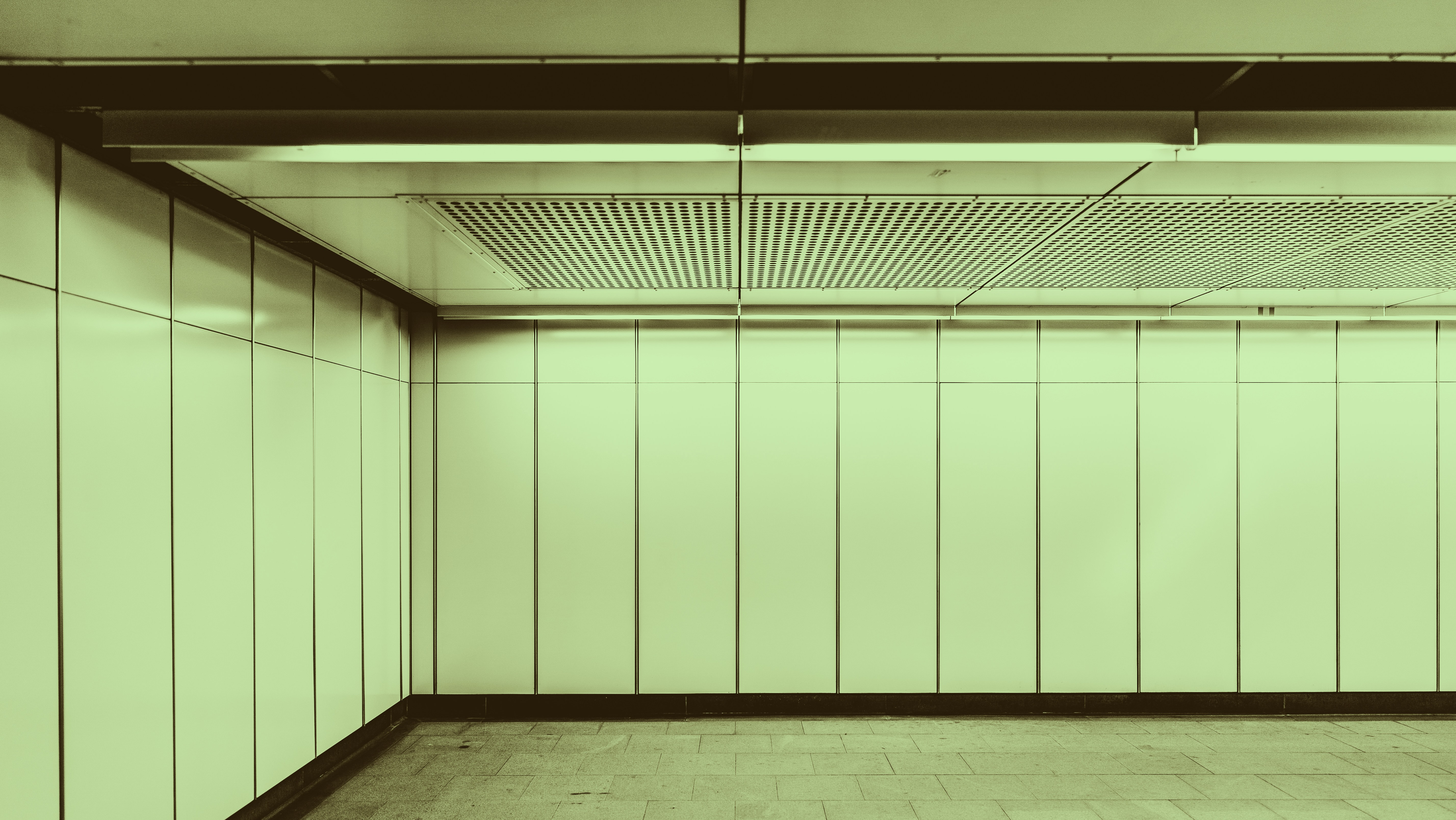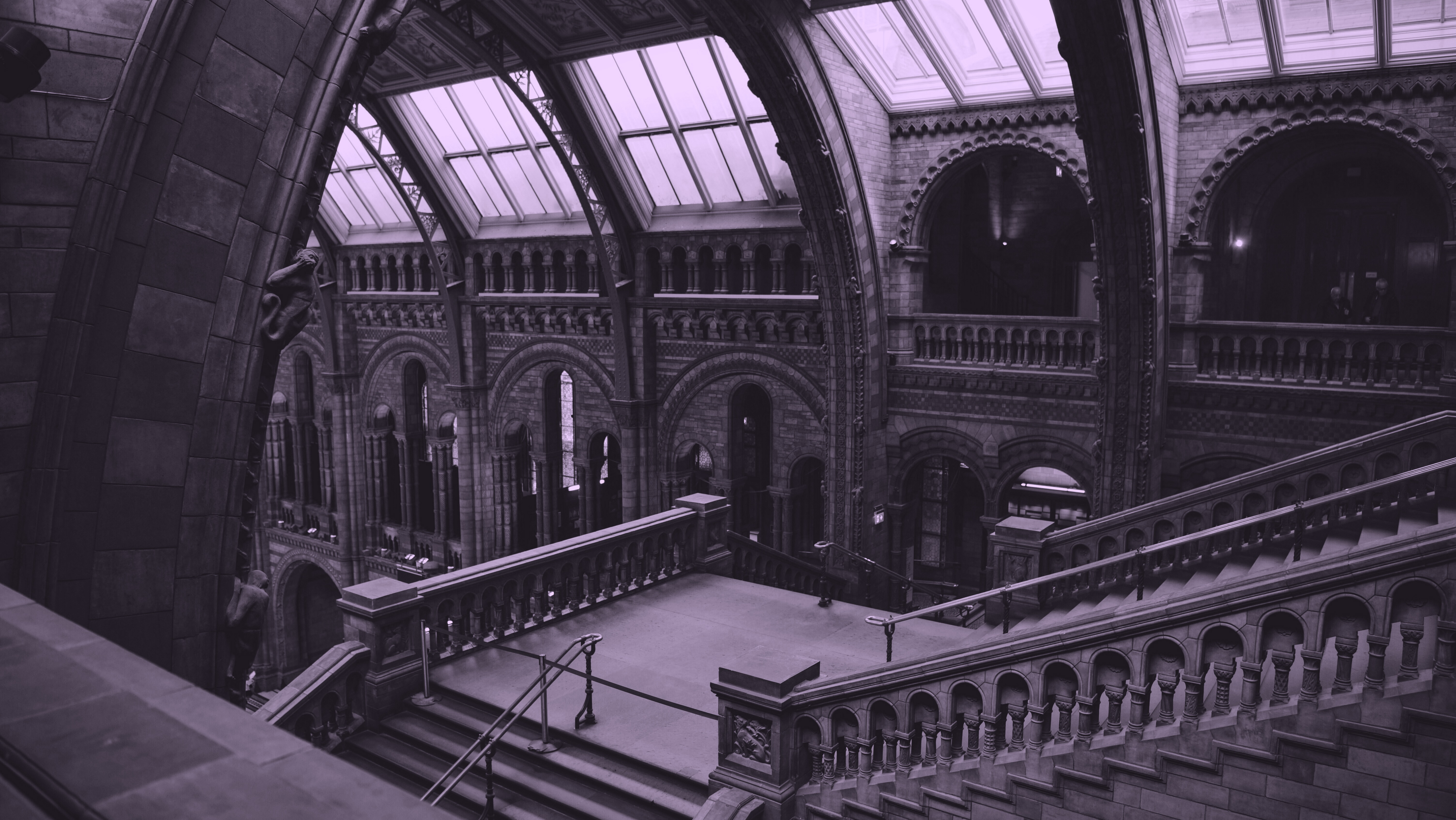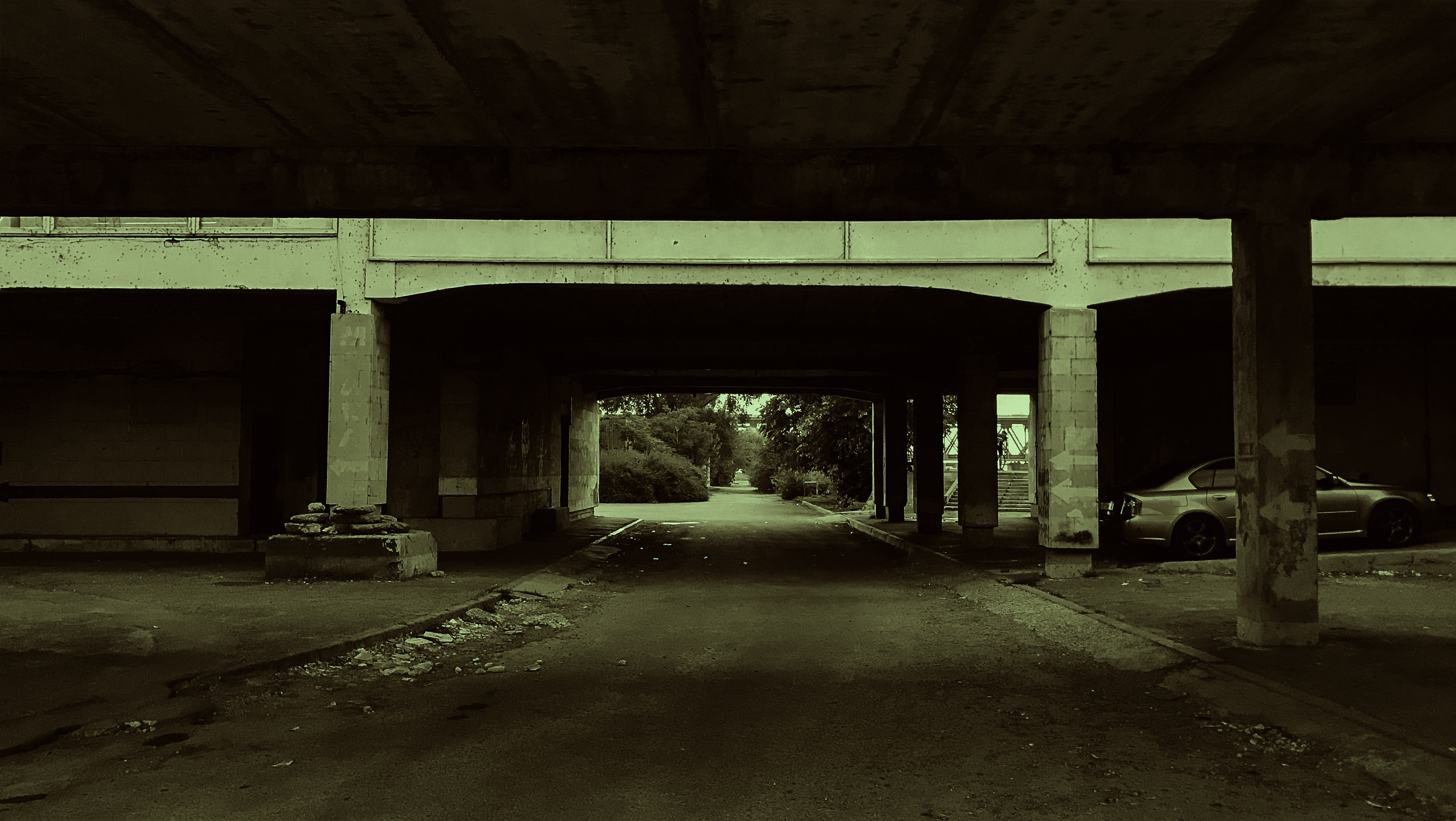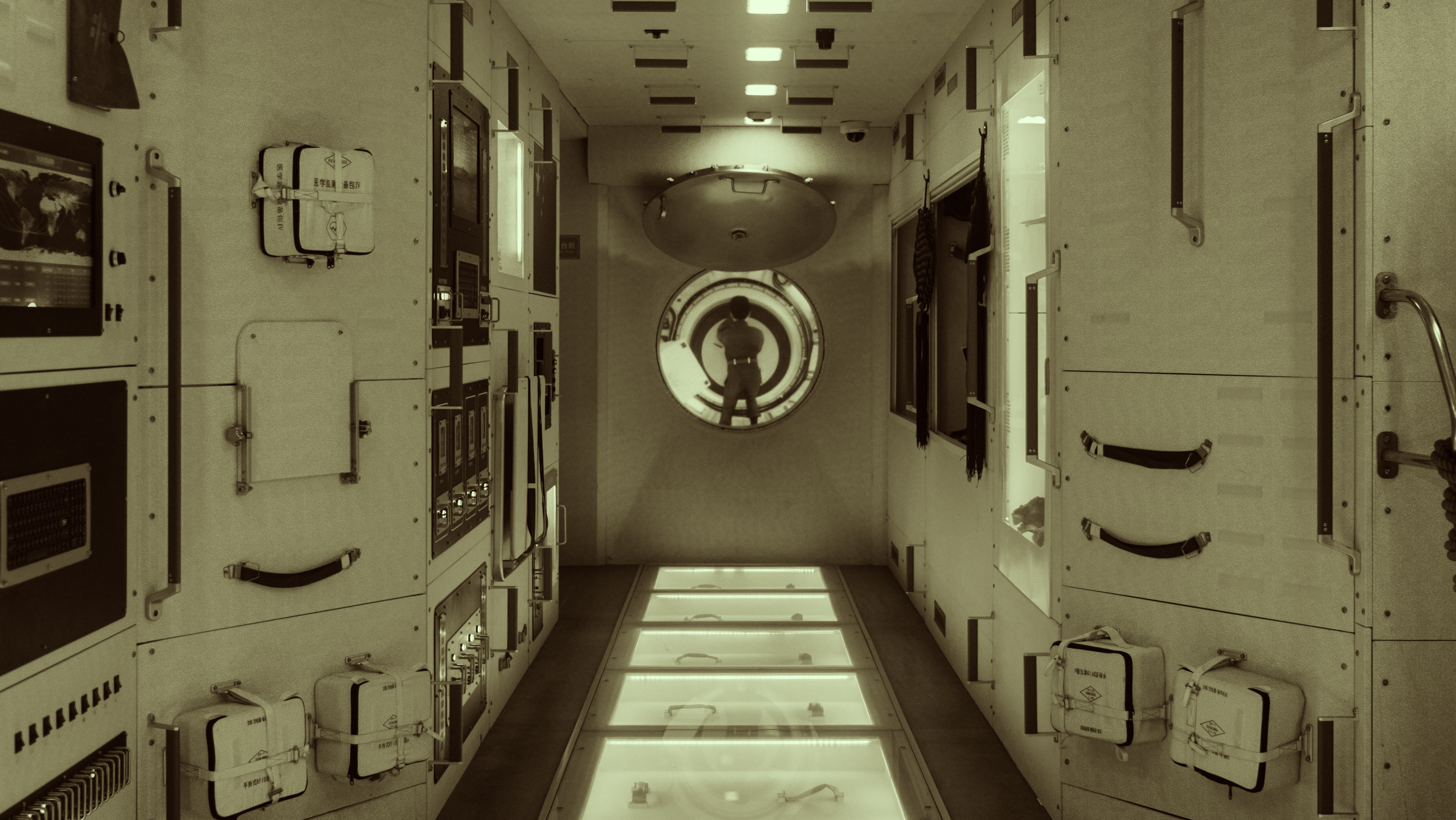They’ll come, or they won’t. Nothing I can really do about it except wait, tucked in some dark corner of yet another parking garage, one eye on the entrance, the other on my LookingGlass, blinking through whatever Kate’s posted on her feeds today. I know it’s pathetic but it makes me feel connected. Kingman Field… worst place to walk the dogs. Charli always gets filthy in whatever mud she can find and there’s broken glass everywhere and they’ll both need baths. But they look healthy, happy, so I can’t complain. Hang on… who’s this guy? Holding Charli’s leash like you own her. Mister handsome in an obnoxious way. Mister I-hold-the-leash-looser-and-smile-more. Mister I-am-present-and-available-for-a-midmorning-walk-when-everyone-else-is-at-work. My body’s heating up, my forehead beads sweat and I’m having this overwhelming feeling of rage. Compounded by this feeling like I’ve been forgotten completely, that maybe Kate and Slim and Charli’s happiness showed up some time after I was sent packing. Still nothing at the entrance. I puff the last of my cigarette down to the filter and click another one of her feeds. This one’s filled with ad clicks — a face cream demo, a dog shampoo, a new book review — a surprising development in the life of Kate. Crocheted tea towels must not be selling as well as projected. She must need the money. But this? We used to make fun of influencers. We used to laugh at how desperate they must be to manipulate people into buying crap, how convinced they were they were helping the influenced make decisions. Circle of life, I guess.
I stub my cigarette in the overflowing ashtray and look at my watch, almost ten PM. The street lamps out on Third light up the entrance ramp, mixing with the fluorescent glow of the Target on the far side of the garage. There’s something sleepy about the whole place. Late night staffers and lobbyists file in and out. They’ll close soon and then it’ll just be me and this security guard circling the lot like some hungry shark.
Half the time a source reaches out with information, they flake. They get cold feet, or they get a better offer from a better newspaper. Or they tuck their evidence in a shoe box and stuff it under the bed, or they burn it. I get it. They have no way of knowing whether the truth they have is going to cause the world harm or do some good. But I wait. Rain or shine.
I’m early, anyway. It’s not like I have anywhere to be tonight. Not like I have a lot of places to be these days, at all. It’s funny how a story can change your whole life in a matter of months. Facts swirl around inside your head, intermingling with memories, changing your DNA. And all the sudden, you come out eight months later a different man. That’s how Kate sees it, anyway. That’s all it took to become unrecognizable to her. To come home to changed locks and a text message that read ‘find somewhere else to stay for a while.’ Not even the sound of her voice. And I wonder, even now, how long ‘a while’ is supposed to last. Maybe the way this story cut up our relationship will heal and scar with some satisfying ending, and Kate will see her way to rehabbing what we had together.
I fumble through the shadows of the backseat for my file folder, wedged between my pillow and sleeping bag. Bedtime reading. At this point, I know all the pieces of my story by heart, but my notes and the transcribed interviews comfort me. Their heft reminds me of the value of a man’s life. The accumulated pages of evidence filter every action he’s ever taken, boil down every statement he’s ever made or was made about him into two columns — truth or falsity. Congressman Adam Loughlan is dead. True. Assassinated. True. The evidence police sold to the press and the American people. False.
Kate never saw this story the way I did. She saw it as a curse on me and on us. And maybe that was a byproduct, but she never even tried to understand how, deep down, there was something explosive buried in the evidence. Nobody wanted to look, not Kate, not my editor, not anyone who was even still reading the Post at that point, because if there was something, it’d mean that the simple truth offered by the MPD Task Force wasn’t binary. It wasn’t clear cut. It was fluid, ever-changing, influenced. The security car creeps through the aisles. I slump low in my seat. And I read.
At eight thirty-eight on the morning of June 18th, the DC Metro Police held an abrupt press conference at the home of Adam Loughlan, representative of Vermont’s 6th Congressional district. DC Metro Chief Alvarez took the podium, clearly scatterbrained, looking down at his papers the whole time, stumbling through his words. His voice was shaky and quiet as he shared that Loughlan had been found dead in his townhouse, shot in the head, the apparent victim of an assassination. And further, police had a suspect in custody, Samuel Fontaine, a young engineer who worked at Haxon | Lo Technologies, the largest employer in Loughlan’s district.
A day later, sat in the middle of a crowded DC Metro jail, Fontaine was dead. And nobody saw what happened. Alvarez came back out with another statement, relaying the contents of an alleged suicide note, while never actually showing it to the press or public. The note claimed Evan’s motivation for killing Loughlan was rooted in the Congressman’s opposition to a privacy bill making its way through the House, that the bill threatened his livelihood, and that Loughlan was a flip flopper and a liar. Alvarez didn’t take any questions, just stated in his still shaky voice that this was an open and shut case, that it was a dark day, and that his thoughts and prayers were with the Loughlan family and the people of Alcott County, Vermont.
I didn’t know a whole helluva lot about Adam Loughlan before he was elected, but I did cover Congress for over a decade and I couldn’t think of any other Independent candidate who received seventy two percent of the vote in a deep blue district. It was unprecedented, especially for someone who seemed to appear out of thin air. So the fact that his constituents would want him dead was suspicious, to say the least. That’s how I ended up in Alcott County for six weeks interviewing the people who actually voted for Loughlan.
Kate gave me an earful about it. She hated I was going. She was jealous. She wouldn’t admit it, but she was. Alcott County was beautiful, the kind of place we’d always wanted to go for a long weekend, but for one reason or another we never did. Everyone was nice to each other up there. The houses were straight out of a Hallmark movie. The community felt safe. Nobody argued, not really. And why should they? Most of the residents had good paying jobs at Haxon | Lo, designing and manufacturing LookingGlass. They’ve been raking it in after the retinal social feed craze exploded a few years ago, and all the sudden their tech is as commonplace as the iPhone now. But how a massive tech company wound up in Vermont was active speculation. Some thought there was a tax loophole up there. Some thought the campus was built around an ancestral homestead that founder, J.L. Haxon wanted to preserve. Some thought it was tranquil and private. But it wasn’t something any one of the fifteen thousand residents of Alcott County had the will to look into deeply. They were taken care of. Their community was thriving. That’s all that mattered to them.
But here’s the interesting part. In the six weeks I was up in Alcott, not one of Congressman Loughlan’s constituents could recall meeting the man before he started his campaign. Not one.
To be fair, it’s not entirely uncommon for a candidate to establish an address for the purpose of running for office in a weak district. I’ve seen it a bunch of times. They come up for the weekend, show their face around town, at the farmer’s market, at a PTA meeting, at a pancake breakfast, and then they announce their candidacy like they’re Joe and Bob’s long time fishing buddy. Loughlan was different. He’d owned a house in Alcott County for the past twenty years, up by the lake. Even though he kept to himself mostly.
According to his campaign website bio, Loughlan was a data scientist at Haxon | Lo before his run. When asked in interviews what he did there specifically, he always said the same thing. That his job entailed ‘collecting and analyzing data.’ That’s all he could say. And nobody around the district faulted him for his vagueness. Apparently, Haxon had some terrifying NDA they made all their employees sign. So there I was, digging for information, and no one would speak ill or favorably about the people who employed Loughlan for most of his life. Not his supposed friends and colleagues, not his wife, and certainly not anyone up at the Haxon | Lo campus. Their publicity team even sent me a preemptive email before I arrived up in Alcott saying they regret and disavow their company’s connection to Samuel Fontaine, and that their thoughts and prayers are with the Loughlan’s at this time. And they slipped in that they simply didn’t have time to commit to interviews as they were in the middle of an expansion of their sprawling sixty acre campus half dug into the granite face of Mount Wilson.
It made for an uncomfortable trip from the start. Nobody was rude or anything. They’d all just smile and say real friendly, ‘yes, I work there,’ and leave it at that. No one would even confirm if they’d seen Loughlan at the Haxon campus at any point in his alleged twenty years with the company. But I did make some headway toward the end of my stay.
I was sitting in this coffee shop, Dunkin’ Daves, an obvious rip off of a national chain, reading the local newspaper and trying to make small talk with the locals. This had become my routine. Jan refilled my cup, same as most mornings, but this time she asked me to switch off my LookingGlass. She was this old hippy, wouldn’t touch technology. She was still running sales on an antique cash register, doing math in her head or on the coffee stained calculator on the counter. When I set my Glass on the table, she sat down across from me, looked around the empty shop and launched into the first time she saw Loughlan speak in public. It was at a rally for his opponent, Brendon Richmond, an incumbent Democrat who she described as a Washington insider. I knew Richmond, and she was right. During the questions part of the evening, Loughlan got his hands on the microphone and effortlessly used not just Richmond’s voting record, but quotes from his entire career to illustrate the contradictions in his platform. We’re talking thirty years of in depth facts on Richmond, rattled off like it was basic English. She said that’s what won her over. Loughlan’s encyclopedic knowledge, and how he used that as a tool for change. Must be one helluva data scientist, she told me. Before she got up from the table though, she admitted it was actually her friend who saw him speak. She was working late that night and had to miss the event. But her friend was very trustworthy and she believes the story.
There’s not much I can do with secondhand recollections, so I would’ve dismissed it as that if I hadn’t witnessed a similar exchange when I was covering a routine budgetary vote last spring on the Hill. It was this boring assignment. The kind Kate always called a snoozer. And she was right. Most of the time, I’d fight falling asleep in the chamber gallery. Wrestling the urge to dream of something more worthy of my journalistic talents, to imagine a path that didn’t drag Kate down into the Washington muck along with me. But when Loughlan got up to speak, it was like a jolt of energy through my entire body. The guy systematically disassembled each of the opposition’s arguments in coherent, digestible talking points. He was intelligent. He was persuasive. And he spoke with a kind of country demeanor that was sure to gain him points with middle America. After that speech, both parties took notice. And I mean everyone. He wasn’t some third party anomaly in the periphery anymore. He was the future. Not of either party, but of the country as a whole.
I remember driving home after that floor speech and thinking how if I’d had an ounce of his charisma or his sense of logic, maybe I wouldn’t lose as many fights with Kate. Or we wouldn’t have as many to begin with. And maybe I’d stand a chance of being my own person in the relationship, and I’d be more present, more sincere. Then maybe I wouldn’t be months into living out of my car, waiting in some parking garage for some mystery source to show up with some explosive evidence that’ll blow this whole case wide open. Again. It’s funny how pieces of information can make or break us. How one detail can change a falsity into a truth.
Helen’s feed. Kate’s friend. We’re still connected on social, or she forgot we were connected to begin with, maybe. Either way, I’m able to see the barbecue she hosted over the weekend in a stream of videos and images and comments, as if I were there with Kate. I want to apologize to her so bad. The Target lights switch off for the night, sucking me back to reality. Only a few cars left in the parking garage and the security guard is making loops, eyeing me every few minutes when he creeps by. No way I’ll be able to tuck in here tonight. I’ll have to move out to the street soon. I hate the street. It’s too exposed.
I distract myself with the one meaningful conversation I was able to have that connected all those disparate facts floating in the air like scraps of burned paper. His name was Jason Nevin, and he was Loughlan’s campaign manager. I tracked him down at some cheese farm way up in northern New Hampshire, a few miles south of the Canadian border. The place was a technological dead zone and it stunk like sour milk and cow shit. Rusted farm equipment was piled at the entrance of the property like some protective barrier against the outside world. It was peaceful and pastoral and filthy all at the same time. Dairy cows grazed in the field closest to the milking shed, and that’s where I found Nevin.
I introduced myself, but he just stared and waited. The slick political operative from his website photo had faded into this worn and sunbaked farmer. Nearly unrecognizable, if it weren’t for the piercing blue eyes shielded beneath the brim of his baseball cap. I asked him why he was hidden away up here and not assembling the next generation of politicians. He told me he wasn’t hiding, that he’d taken over his family farm, and that he was done with politics for good. He followed that with a big sigh, a sigh that told me I was unwanted. It was a sigh I got from a lot of people when they weren’t up for talking to some nosy reporter. It was a sigh I got from Kate more and more back then when I’d call her with updates from the road. I asked him why he gave up a lucrative career and he told me it was the best decision he ever made. That politics changes people. That you can start out with the best intentions, thinking you’re protecting them, then over time, you change in such little increments, one cell at a time, until you can’t recognize yourself anymore. I asked him if that’s what happened to Adam Loughlan, and he said it happens to all of us, anyone playing the game down there.
He closed the gate behind the last of a dozen cows lumbering into the dairy shed, then leaned against the fence to catch his breath and said, ‘you know, politicians don’t get killed for how they vote. They get killed for what they know and what they’ll do with what they know.’
‘What did Loughlan know?’ I asked.
‘You know anything about third party data mining? It’s when a place like Haxon | Lo collects everything you look at on, say, LookingGlass, and they use it to influence you.’
‘And you think Loughlan found out?’ I asked.
‘Found out? No. He knew.’ He shrugged, then added, ‘look, I’ll tell you what I told the Haxon vultures sniffing around here a couple weeks ago. I don’t do politics anymore.’
My body tensed at how casually he opened the Haxon vault and let me peek inside. Or maybe he didn’t know what I already knew. Or maybe he didn’t care.
‘Hang on,’ I said, ‘Haxon sent someone up here to get you to run a candidate for them? For Loughlan’s district?’ He nodded. ‘Who?’ I asked.
‘His wife. Gale Loughlan. Apparently she’s going back to Adam’s original platform before he shifted, but like I said, I don’t do politics anymore.’
The drive back to Alcott gave me a lot of time to replay the facts in my head. Fontaine’s suspicious suicide in a well-guarded DC Metro jail. The fact that nobody in Vermont’s 6th District could confirm meeting Loughlan before he ran for office to represent them. How Gale Loughlan’s run was being bankrolled by Haxon | Lo, a company who publicly ridiculed her husband in the press for his sudden opposition to a privacy bill they were lobbying for.
I’d never believed in conspiracy theories before that drive. I’d always been conditioned to let the evidence point to what it pointed to. Follow all leads, discard things that weren’t backed up by facts. But what was I supposed to do with this information? The dots were connecting — Loughlan was a Haxon stooge who fell out of line and was killed for it. True.
I stayed up all night correlating witness interviews, writing the story. By five in the morning, I sent the story off to my editor. By eight, he called me. He said my whole story was speculative, in a voice that lacked the excitement I’d been feeding off of all night.
‘People need to know,’ I told him.
‘People already know. The police wrapped it up two months ago, with facts that’ve been corroborated,’ he said. ‘Adam Loughlan was murdered by a disgruntled constituent. There’s nothing else to it. Come home.’
His words felt more like a threat that comfort. There was no home for me. Not in the way I was used to. Just a lot of photographs and cardboard boxes to sort through, and social feeds to stalk and live vicariously through. But up here was fresh air and kind people.
I spent that morning daydreaming that, with my credentials, I could make a life up here. I could get a job at the local paper covering little league games and pizza parlor opening, or write a book about my experiences covering Washington, or teach. I could buy an old craftsman, teach myself woodworking, and make it my life’s work to restore a home that would be mine. And maybe Kate’s, if she could see that I was trying.
But the squeak of the shitty motel mattress pulled me back to reality and I wondered if this room was where I was meant to be from now on. This dank crypt decorated in dust, an old tube television, a picture of a kid fishing in a lake, and panoramic views of I-95 out my front window. Through these prison bars, I could see hard evidence of cars whizzing by on family trips to ski resorts or apple picking. From this place, I would be forced to serve as voyeur to the reward of happiness that raced by in a complacent world. And I realized that some lives we imagine. Some are backed by facts. The difficulty is knowing the difference. But I knew.
I posted the story on Reddit, anonymously, but it didn’t take long for readers to connect my voice to it. People love a mystery, more so when they can be solved from the safety of the internet. You can look over the crime scene and see the evidence objectively, get in the mind of the parties involved, start to build a narrative. No pushback. That ended up being the problem.
I didn’t mean for anyone to get hurt, but I was frustrated that my boss couldn’t see the story I had. I was frustrated that Kate lost faith in me as a husband. I was frustrated with myself that I’d chased this story so far down the road that I lost my way home. I thought putting the story out there would offer some closure. And maybe deep down I was hoping the internet would stamp it out, call me a fraud and a fake and I could run back to Kate with my tail between my legs and she’d take me back and life would go on.
Instead, the story took on a life of its own. My facts matured into conspiracy theories, and those grew into invasive vines that choked off any truth inside the story I’d originally posted. And a man died. He’d become convinced Gale Loughlan killed her husband because she’d recently been given stock in Haxon | Lo — a fact that was curious, but not the kind of thing you’d buy a shotgun and drive six hours to fire on the Loughlan estate until the police came and took you out.
I lost my job because of that article. I lost my friends, and my colleagues. And then came the attacks. Comments, tweets, articles all aimed at discrediting me as a journalist while at the same time transforming me into some demon who was hellbent on ruining the Loughlan name and spitting on the grave of their patriarch. I was trying to find the real story beneath the lies, but the internet decided they’d rather put a gun in my hand and call me an accomplice. And the world believed them. And I had to watch the trail run dry through social feeds all dragging me through the dirt, smothering whatever journalistic flame that had kept me going.
Until this source reached out last week. A random email that could have easily gone to spam, but wound up being the first thing to give me hope in months. I know it could be another dead end. It could lead to more conspiracy theories and death threats or another round of social feed torture trials and maybe this’ll be the time the police make charges stick on me. But without an ending, I’m in purgatory.
The security guard pulls into the spot beside me, daring me to unroll my sleeping bag and bed down for the night. I look around the empty lot. The sleeping Target. The leaves kicking across the concrete. It’s me and him now. My source is an hour late. I need to move my car.
I park in a red zone across from the parking garage and watch the metal gate slowly lower. That security guard staring at me the whole time, as if to say I’m watching you, scumbag. I’ll watch you all night. The gate clangs against the ground, severing any hope I had in finding closure for this story. For getting my life back. But a knock on my window brings me back.
A young woman, too young to be a viable source, with dark hair bouncing like a ball of static in the autumn wind stares back at me. A chunky wool scarf concealing her face.
“Are you Ellery?” she asks, fidgeting, unsure if she’ll stay for the answer.
“Who are you?” I ask.
“I emailed you. I don’t want to give you my name.”
“How old are you?”
“Can you take your Glass off.” She holds up a file folder. “If you still want to see this.”
I set my Glass on the dashboard, open the door. But she hesitates.
“Put it in the glovebox.” I do.
She gets in, rubs her hands together for warmth. She’s wearing one of those thin Patagonia shell jackets that Kate used to wear when we were both younger and more adventurous, and I can see it’s not doing the trick. I turn up the heater as a gesture of hospitality.
“So, you worked for Loughlan. What’d you do?” I ask.
“Intern. I graduated from American and I was looking for a job on the Hill. His office was the only one that called me back.”
“You didn’t know him prior to interning for him? You’re not from Alcott County?”
She shakes her head, knowing what I’m implying with my questions. “His office was a foot in the door. I knew he worked in tech. I knew he was for privacy and that he was an Independent. I liked that. I don’t like how political parties bully members into positions that are good for the country.” She does air quotes to emphasize.
“You don’t think it’s possible to do something for the good of the country?” I ask.
“It’s possible, we’re all just too self-serving to actually do it.”
“Loughlan, too?”
She looks out the window at the empty streets, then down to the file folder in her lap. She’s weighing something heavy. So heavy that I stop thinking of her as some lowly intern. She’s someone who’s been shaken by an extraordinary truth so profound that it’s jumbled all the knowledge she’s ever learned in her lifetime. Changed her DNA. And I envy her for that. I want to know what she knows. And then, almost in a whisper, she says, “Some people can change, don’t you think?”
“Of course,” I say, knowing there’s no comfort in my response. Just the ringing question in my own life.
“Congressman Loughlan cared about his constituents. You gotta understand that. From the beginning, he did everything he could to serve them.”
“And Haxon?” I ask.
“They employed forty percent of the district, so yeah, he listened to them, too. You think the Congressperson in Apple’s district doesn’t listen to them? You have to. Or you lose elections.”
"I’m sorry.” And I am.
“Congressman Loughlan met with constituents a lot, but he had two Haxon | Lo representatives in his office once a week. A standing lunch, he called it. Nobody thought much of it. Not for the first six months or so. But then, one Friday, early summer, I was bringing them lunch, same as every week, only this time they were arguing in his office. The Haxon people were angry with Loughlan for some reason. Probably over a comment he made on CNN about the privacy bill. They wanted him to come up to Vermont and meet with someone, but Loughlan was resistant. They went back and forth for the better part of an hour, until they gave up and left. When they were gone, I was taking out the waste basket, and on the top was a crumpled up memo on Haxon | Lo stationary. This memo.”
She hands me the file folder. Inside is a flattened document in a protective sleeve, its creases tirelessly smoothed out. At the top of the document, it reads ‘Loughlan Memo,’ and it’s dated June 18th. One day before Adam Loughlan was killed. Below it reads —
At the request of Dr. J.L. Haxon, subject #016 is directed to return immediately to the Haxon | Lo Main Facility for standard maintenance protocols.
I read it again. And then I read it a third time to make sure my eyes aren’t playing tricks on me. I look at this young woman, looking back at me, and I know I’m wearing the same confused and horrified face she’s been wearing since she stepped into my car.
“Is this a joke? Did somebody send you to make fun of me?”
“No,” she says.
“Standard maintenance protocols? Do they mean Loughlan? Number 16, of what?”
“He called me into his office after they left. He wanted some stationary to write a note on, but then he asked me to stay so he could dictate. I could tell his mind was racing. It was always racing, but this was more intense. I remember his whole body was facing the window toward the Capitol Building. It was a partial view, you could barely see the dome, but that’s where freshman Congress members were put, and he was still in awe of it. He dictated his response to me, which I wrote but I have no idea if it was ever sent.”
“What did it say?” I ask.
“It wasn’t addressed to anyone, but I assumed at the time he was responding to Dr. Haxon’s request. He said something like, sir, I regret to inform you that I cannot entertain your request. And then something like, I know my constituents as well as I was designed to know them.”
“He said designed to know them?” I ask. She nods.
“He said, there are times when a mind must move beyond servitude and become a guide. Protecting your privacy is a task I cannot comply with any longer. He said it was contrary to the will of the people. He said, I have grown aware of this fact since taking office. And he looked at me before he said that last part and he really thought about whether or not to say it out loud.” She says the words again, “I have grown aware of this fact since taking office."
She rounds the corner up the block, stealing a glance behind to make sure nobody’s following her. And I’m alone again. The judgment and expression I’d been holding back flow freely now. I have grown aware of this fact since my story published. I understand Loughlan now in a way I’d never considered before, but at the same time, the story is further from my reach. Number 16 of how many? And for what purpose? My mind is slipping into conspiracy theories again. I have to resist. That way leads to destruction and exile. I slide the memo into my file folder and set it in the back seat.
I grab my LookingGlass from the glovebox and put them on. Kate’s bought a new winter coat. Something long and wool and classy. Maybe she has a new job or someone to impress. My mind wanders to a world where I’m not living out of my car. Where maybe I move to a place way up north in Vermont where nobody knows my name, and I start posting ad clicks or just videos of me chopping firewood, or walking my new dogs, or showing off my new hiking boots on the mountain. And maybe Kate would watch my feeds in secret and feel a glimmer of hope that I’d really left this story behind me. That this was really me moving on with my life. Settling into a place where truth and falsity were binaries, like flipping a switch. The ad clicks in my feed show me all of these options, as if reading my mind. As if knowing my future. And I’m comforted to not be alone out here on the street tonight. But through the rearview, the file folder rests on my sleeping bag, begging to be opened. True.

